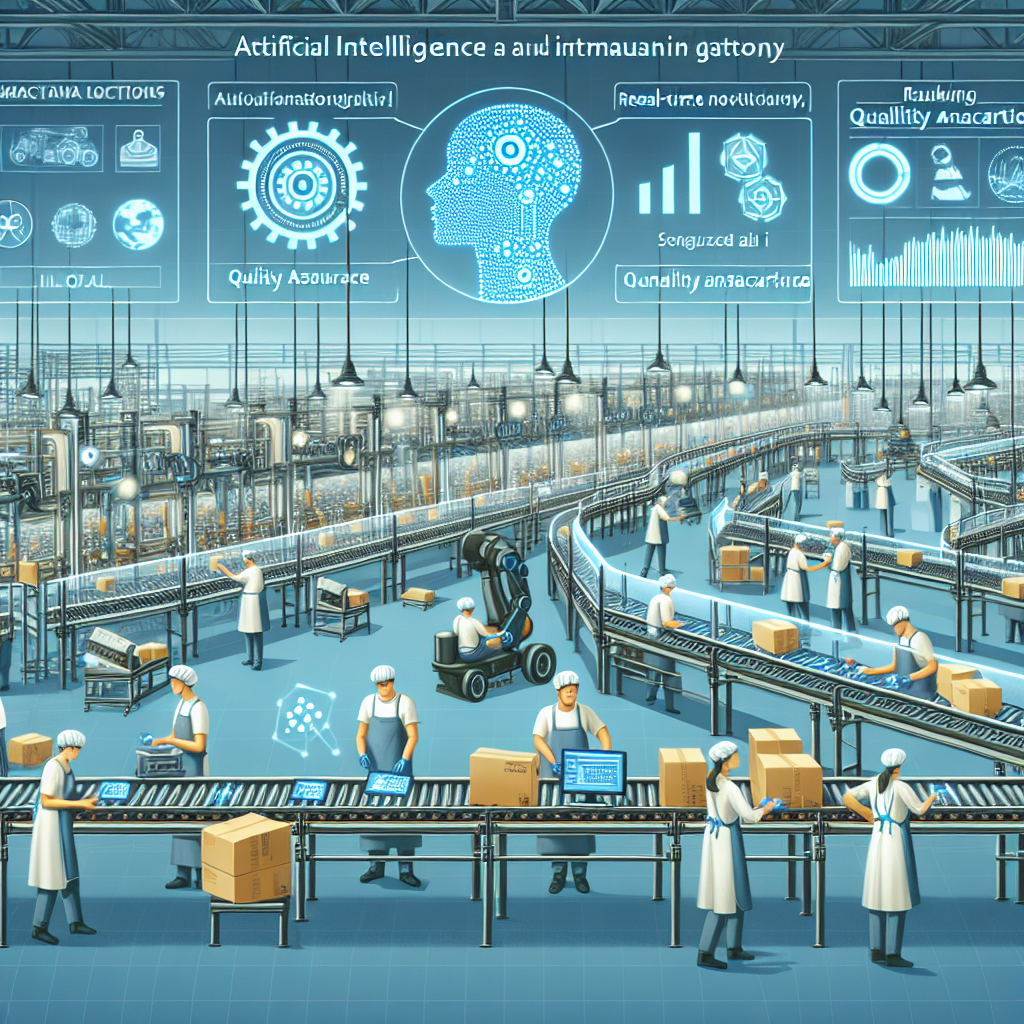In today’s fast-paced manufacturing environment, the ability to monitor production in real-time is crucial for optimizing efficiency, reducing downtime, and ensuring quality control. With the advancements in artificial intelligence (AI) technology, manufacturers now have the opportunity to leverage AI for real-time production monitoring to enhance their operations.
Real-time production monitoring involves using sensors, cameras, and other IoT devices to collect data on various aspects of the manufacturing process in real-time. This data is then analyzed using AI algorithms to provide insights and actionable information to improve production efficiency.
One of the key benefits of leveraging AI for real-time production monitoring is the ability to detect and address issues as they occur, rather than after they have already impacted production. For example, AI algorithms can analyze data from sensors monitoring machine performance to predict when a machine is likely to fail, allowing maintenance teams to proactively address the issue before it causes downtime.
AI can also be used to optimize production schedules by analyzing real-time data on machine performance, production rates, and orders to dynamically adjust production schedules to meet demand while minimizing downtime and waste. This can help manufacturers improve efficiency and reduce costs.
Another benefit of AI-driven real-time production monitoring is the ability to improve quality control. By analyzing data from sensors monitoring product quality, AI algorithms can identify defects or abnormalities in real-time, allowing operators to take corrective action before defective products are produced.
Overall, leveraging AI for real-time production monitoring can help manufacturers improve efficiency, reduce downtime, and enhance quality control, ultimately leading to increased productivity and profitability.
FAQs:
Q: How does AI technology improve real-time production monitoring in manufacturing?
A: AI technology can improve real-time production monitoring in manufacturing by analyzing large amounts of data in real-time to provide insights and actionable information to optimize production processes, detect and address issues as they occur, and improve quality control.
Q: What types of data can be monitored in real-time using AI technology?
A: AI technology can monitor various types of data in real-time, including machine performance data, production rates, product quality data, and orders to optimize production schedules, detect issues, and improve quality control.
Q: How can AI algorithms predict machine failures in real-time?
A: AI algorithms can predict machine failures in real-time by analyzing historical data on machine performance, identifying patterns that indicate a potential failure, and alerting maintenance teams to proactively address the issue before it causes downtime.
Q: How can manufacturers implement AI for real-time production monitoring?
A: Manufacturers can implement AI for real-time production monitoring by installing sensors, cameras, and other IoT devices to collect data on various aspects of the manufacturing process, and then using AI algorithms to analyze this data and provide insights and actionable information.
Q: What are the benefits of leveraging AI for real-time production monitoring?
A: The benefits of leveraging AI for real-time production monitoring include improved efficiency, reduced downtime, enhanced quality control, optimized production schedules, and increased productivity and profitability.

